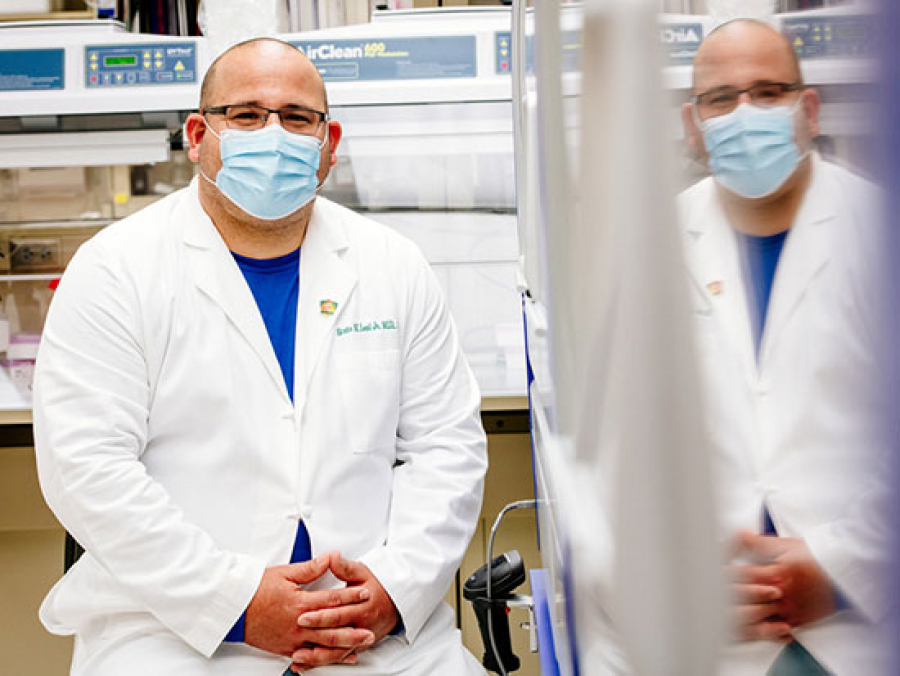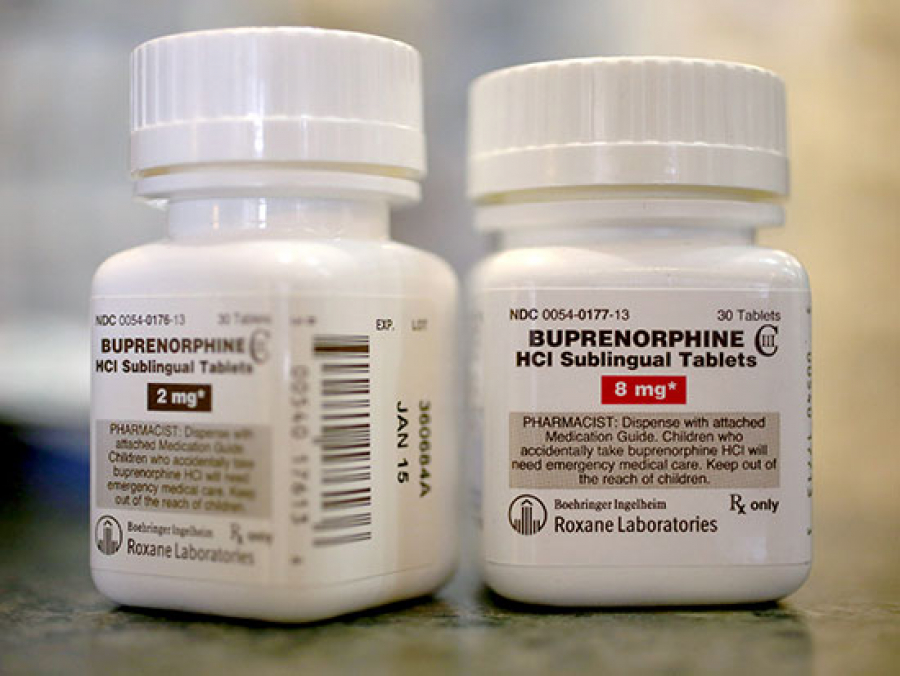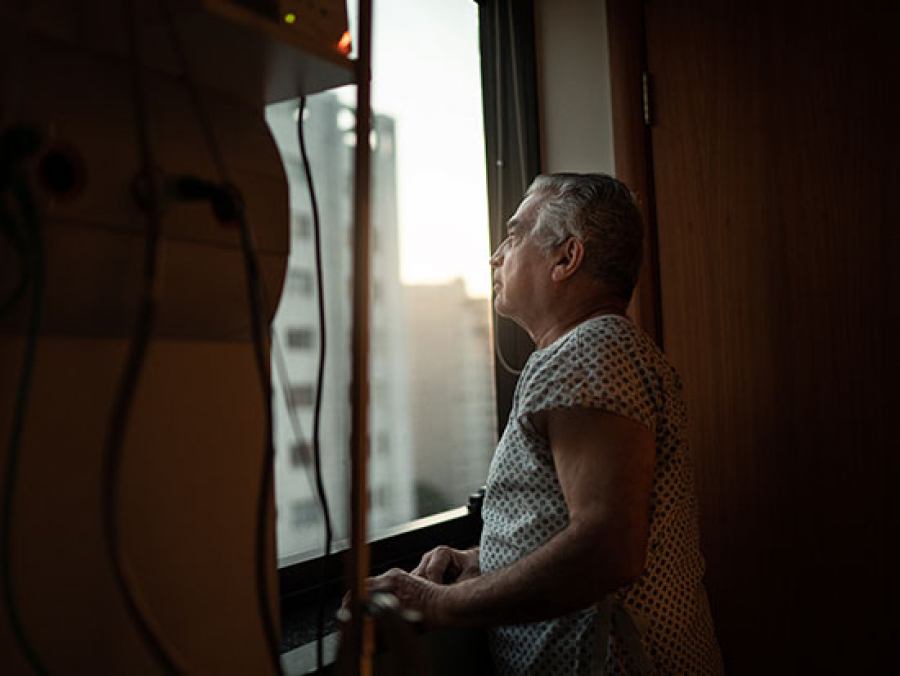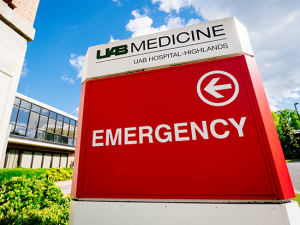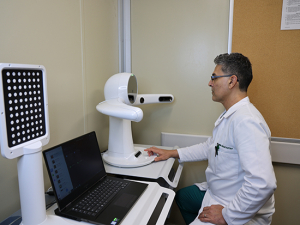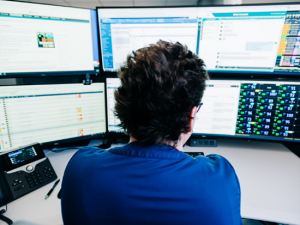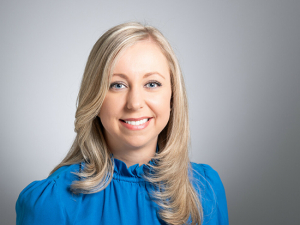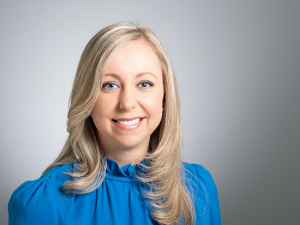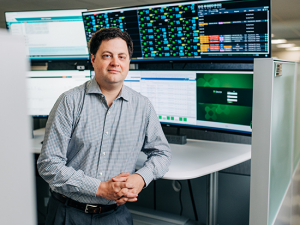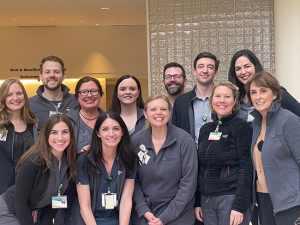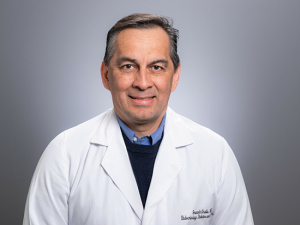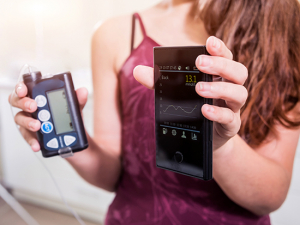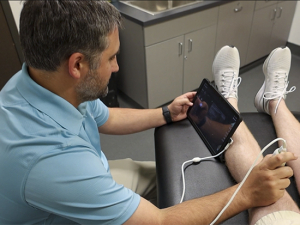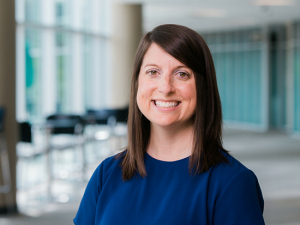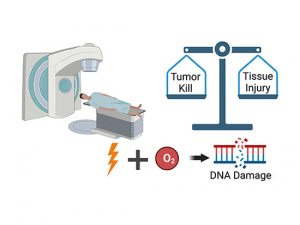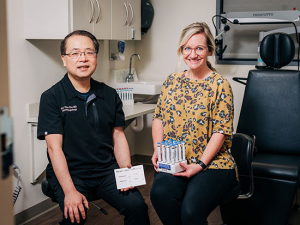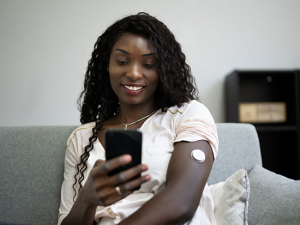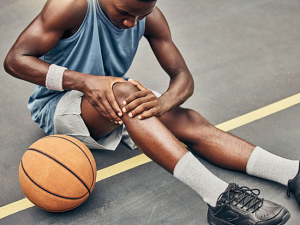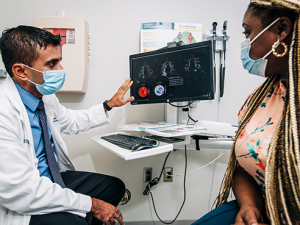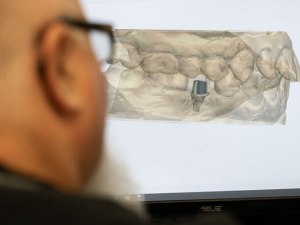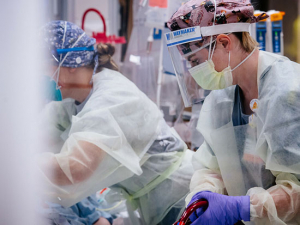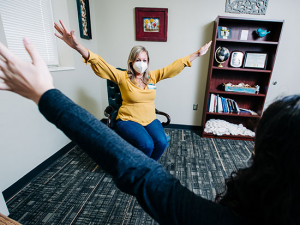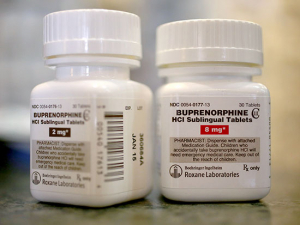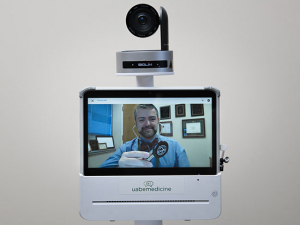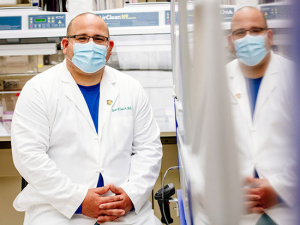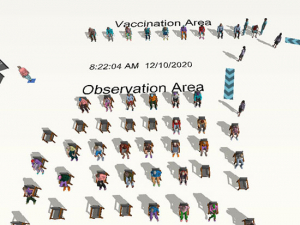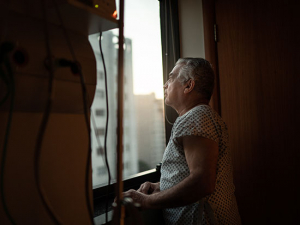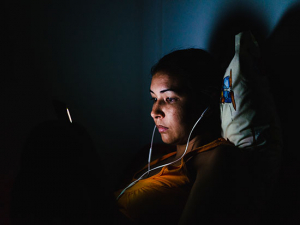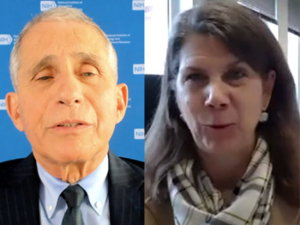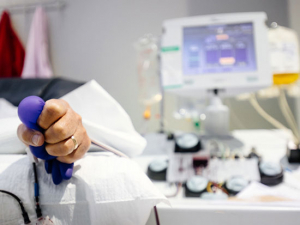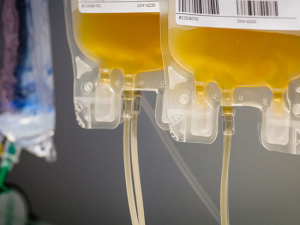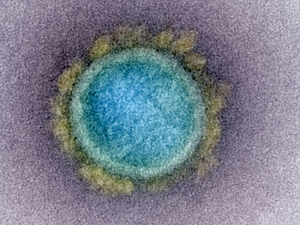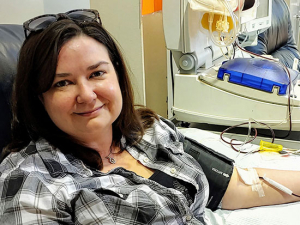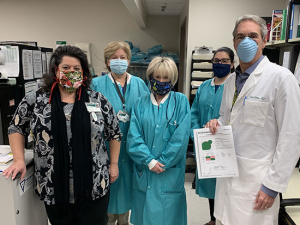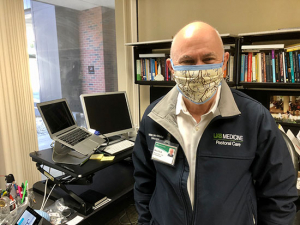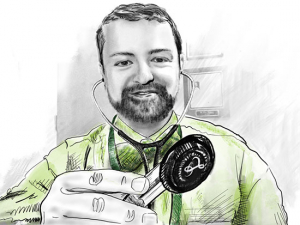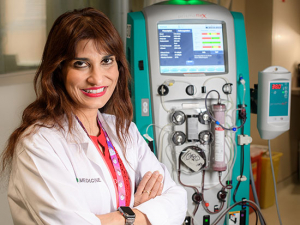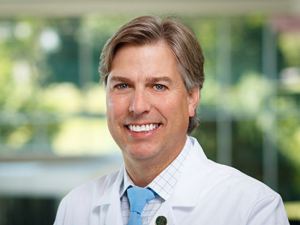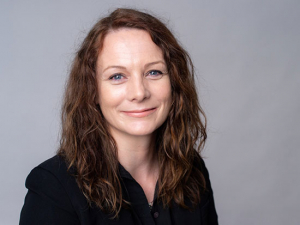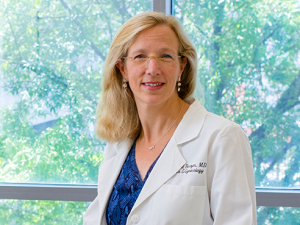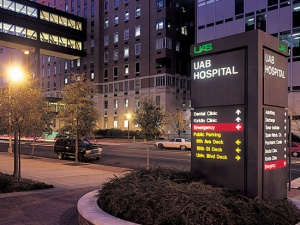-
AI-enhanced telesitter pilot program aims to improve care and safety of older adults in the ED
A grant from UAB’s Health Services Foundation General Endowment Fund will support a project testing an AI tool trained to predict fall risk and identify signs of delirium in order to improve patient care and safety for older adults in UAB’s Geriatric Emergency Department at UAB Hospital-Highlands.
posted 2 days agoA dental expert weighs in on top digital tech for restoring smiles in 2024Some 120 million Americans are missing at least one tooth; UAB’s Ramtin Sadid, DDS, M.S., professor and division director for the Division of Prosthodontics, the specialty that focuses on tooth restoration, explains the latest technologies experts are using today.posted a while backInside a revolutionary UAB Medicine telehealth project built for real life in AlabamaMore than 1,000 patients have enrolled in a cutting-edge remote patient monitoring program that gives high-risk patients cellular-enabled blood pressure cuffs, glucose monitors and/or weight scales to take home.posted a while backNew UAB startup offers life-changing treatment for functional neurological disorderUAB’s newest spinoff is led by Aaron Fobian, Ph.D., a clinical psychologist whose research-backed treatment for FND has attracted attention from patients and providers around the world. Her company offers the first therapist-centered digital platform that is standardized and tailored to each individual patient’s needs at each individual session.posted a while backWhen developing a successful treatment means a loaded calendar and an “entirely new plan”Clinical psychologist Aaron Fobian, Ph.D., created Retraining and Control Therapy, or ReACT, for patients with functional neurological disorder. It has helped hundreds reclaim their lives and led Fobian to develop an adaptive digital manual to expand use.posted a while backHow UAB’s tele-neurology service is saving lives, time and money across AlabamaPatients at 29 hospitals and free-standing emergency rooms around the state are now being evaluated rapidly for suspected strokes and other conditions by expert UAB neurologists. The program has provided nearly 7,000 consults for patients — many of whom are routed to potentially lifesaving care or saved from expensive transfers away from their home communities.posted a while back5 things your speech language pathologists want you to knowWilliam Boswell, a speech pathologist-voice therapist in the UAB Voice Center, explains some of the innovative treatments available, why patient numbers are rising and what sets UAB apart.posted a while backDiabetes diagnoses might get much more specific in the future, UAB expert saysUAB endocrinologist Fernando Ovalle, M.D., explains why new subtypes of diabetes could lead to more precise treatments, fewer doctor visits and potentially reduced health care expenditures.posted a while backDiabetes technology: the future is today, UAB expert saysContinuous glucose monitors and insulin pumps can help patients “live a quality life without burning out on managing diabetes,” said Ananda Basu, M.D., director of the Diabetes Technology Program at UAB.posted a while backUAB is one of the first U.S. medical schools to give ultrasound units to all students. Here’s why.Using a handheld ultrasound device, a trained clinician can rapidly and accurately diagnose anything from kidney stones to heart function, saving time and money for patients in rural and urban underserved areas.posted a while backEarly life trauma and traumatic grief trap millions. This expert helps people learn to live differently.Rebecca Rampe, Psy.D., an assistant professor in the Department of Psychiatry and Behavioral Neurobiology, explains her approach to treating developmental trauma and traumatic grief in adults.posted a while backNew cancer therapy being studied at UAB could one day offer complete radiation treatment in millisecondsFlash radiation therapy delivers an ultra-fast, ultra-high burst that has the same deadly effect on tumors with fewer side effects for patients.
posted a while backSmell training is brain training, parosmia success — and five other insights from a new UAB clinicKey takeaways on retraining the nose after COVID, a drug that can take away persistent bad smells and more from Do-Yeon Cho, M.D., director of UAB’s Comprehensive Smell and Taste Clinic.
posted a while backThis diabetes technology is transforming care one meal at a time, expert saysContinuous glucose monitors are “such a useful and impactful behavior modification tool” that half of his patients with Type 1 and Type 2 diabetes now use these devices, said Fernando Ovalle, M.D., director of UAB’s Multidisciplinary Comprehensive Diabetes Clinic. Learn how data leads to better decisions and better control of diabetes.posted a while backNew grafts, seat belts, more recovery: Expert updates on treating and preventing ACL injuriesEach year, some 100,000 Americans have surgery to repair the knee’s anterior cruciate ligament, or ACL. But treatment and prevention best practices continue to evolve. Hear from a surgeon and a physical therapist on the latest thinking at UAB.
posted a while backInside a high-tech heart clinic, doctors look to the past for clues to the futureThe Cardiogenomics Clinic at UAB, one of only two in the Southeast, uses genetic testing to develop a personalized plan for patients at risk of hereditary cardiovascular conditions. “We’re not just treating one patient, but the whole family,” doctors say.
posted a while backNo filling, no drilling: An expert’s guide to the top tooth tech of 2022Modern dentists can fix early cavities with resin, use bioactive materials to defend fillings from bacteria and print new retainers on demand. Learn what these innovations mean for patients and why the UAB School of Dentistry is a go-to destination for testing the latest.
posted a while backNew snakebite program at UAB, one of the nation’s first, offers cutting-edge careAfter the emergency has passed, where can a snakebite survivor go for answers on healing? UAB’s follow-up clinic, launched in 2021, is part of a comprehensive program evaluating new diagnostics, coordinated care and other innovations.posted a while back3D Problem-Solving means listening, tearing down silos and sending people home happyUAB Hospital’s Clinical Practice Transformation group has developed a unique method for helping teams come together to create change and boost employee satisfaction. Although it was designed for health care, it can work in any setting, they say.
posted a while backTesting a promising treatment for functional seizures in childrenClinical psychologist Aaron Fobian, Ph.D., has developed a therapy for this debilitating condition that she is now testing in a major NIH-sponsored clinical trial.posted a while backOpioid overdoses are surging, but 'we have the tools to help,' UAB doctor saysMedications to treat opioid use disorder include methadone, naltrexone and buprenorphine. Leah Leisch, M.D., medical director of Substance Use Services at UAB Beacon Recovery Services, explains how each is used and prescribed.
posted a while backMedicine without the mileage2020 was the year for telehealth: Pandemic safety restrictions led to a 2,000% increase in telehealth patient volume for UAB eMedicine this past year and saved patients more than a quarter of a million hours of travel time.
posted a while backHow a UAB lab tracks risky COVID-19 variants, and why that mattersSkills and sequencing combine to gather the first data on the UK variant in Alabama in Pathology’s Fungal Reference Laboratory.
posted a while backSimulations help vaccine rollout and cut the wait in UAB clinicsBefore patients arrive, experts use computer models to design the safest, most efficient workflows for staff and providers and reduce wait times.
posted a while backTrial studying technique to clear ‘brain fog’ after COVID-19Constraint-Induced Therapy, developed at UAB and used worldwide to help patients regain function after stroke, will be tested as therapy for patients with cognitive difficulties following COVID-19 infection.
posted a while backFive lies keeping you awake at nightBehavioral sleep medicine specialist Justin Thomas, Ph.D., answers one of Google’s most-searched questions of 2020: “Why can’t I fall asleep?”
posted a while backFauci, Neuzil explain what we’ve learned about COVID-19 and where we stand on vaccinesIn keynote addresses at UAB’s COVID-19 Research Symposium, Anthony Fauci, M.D., and Kathleen Neuzil, M.D., shared the latest science on how COVID-19 spreads and the safety and efficacy of vaccines in late-stage trials.
posted a while backDiagnosed or been exposed to COVID-19? New studies are testing desperately needed therapies.Clinical trials of monoclonal antibodies and convalescent plasma offer new options to outpatients in the first days after a COVID-19 diagnosis.
posted a while backNew studies test convalescent plasma for COVID-19 treatment — and preventionUAB is enrolling patients as part of randomized controlled trials that experts say are necessary to prove the efficacy of the much-discussed COVID-19 treatment.
posted a while backShould you get COVID antibody testing? And what do the results mean? UAB experts respond.Many people are looking to antibody tests for peace of mind. But the results aren’t actionable at this point, an infectious diseases expert says. Learn more about UAB’s current and future antibody testing efforts.
posted a while backConvalescent plasma therapy is treating coronavirus patients in UAB researchUAB is part of several trials to test whether an infusion of antibodies from people who have beaten COVID-19 can help those dealing with infection or at risk for infection. Donors are needed.
posted a while backCoronavirus antibody testing now is available at UAB. Here’s what that means — and what it doesn’t.Antibody testing can reveal if a person has been exposed to the novel coronavirus in the past. More research needs to be done before we know if that means they are “protected” from COVID-19.
posted a while back‘People want to tell their stories’: UAB chaplains keep connecting through COVID–19As UAB Hospital copes with coronavirus, Pastoral Care chaplains walk the halls to support “a lot of really tired, amazing employees.”
posted a while backSee how health tech is cutting miles and changing lives across AlabamaWireless glucose monitors, HD cameras and talking scales: UAB eMedicine has saved Alabamians nearly 200,000 miles of driving and sliced stroke treatment times for rural patients from hours to minutes.
posted a while backCRRT dialysis in the ICU — what patients and families want to knowNephrologist Ashita Tolwani, M.D., is internationally renowned for her expertise in continuous renal replacement therapy. UAB’s CRRT Queen explains this powerful, complex therapy and how UAB became a global leader in the field.
posted a while backAs molecular testing changes patient care, UAB lab aims to set the standardThe Precision Diagnostics Laboratory effort, led by Craig Mackinnon, M.D., Ph.D., will support surgeons, oncologists and other clinicians with the latest tests and custom assays, starting with gene panels for cancer and drug metabolism that return answers in hours, not weeks.
posted a while backOpen source: How data scientist Liz Worthey is bringing precision medicine to the peopleA decade ago, Liz Worthey’s computational skills saved a life and earned her a profile in a Pulitzer-winning article. Now at UAB, this new recruit is creating tools and building collaborations to transform these extraordinary efforts into a routine part of patient care.
posted a while backNow see this: Myopia control can slash the toll of nearsightednessSpecial contact lenses or eye drops can reduce a patient’s final prescription by half in the School of Optometry’s Myopia Control Clinic. That means thinner lenses and also a much lower risk of serious eye problems, including glaucoma and cataracts.
posted a while backNew clinic to help medically at-risk women prevent pregnancyPhysicians in the Complex Contraception Clinic can develop a temporary or permanent contraception plan for women battling other health conditions.
posted a while backUAB Hospital again highly ranked by U.S. News & World ReportFour medical specialties are ranked in the top 20 in the nation, and six more are ranked in the top 50.
posted a while back
